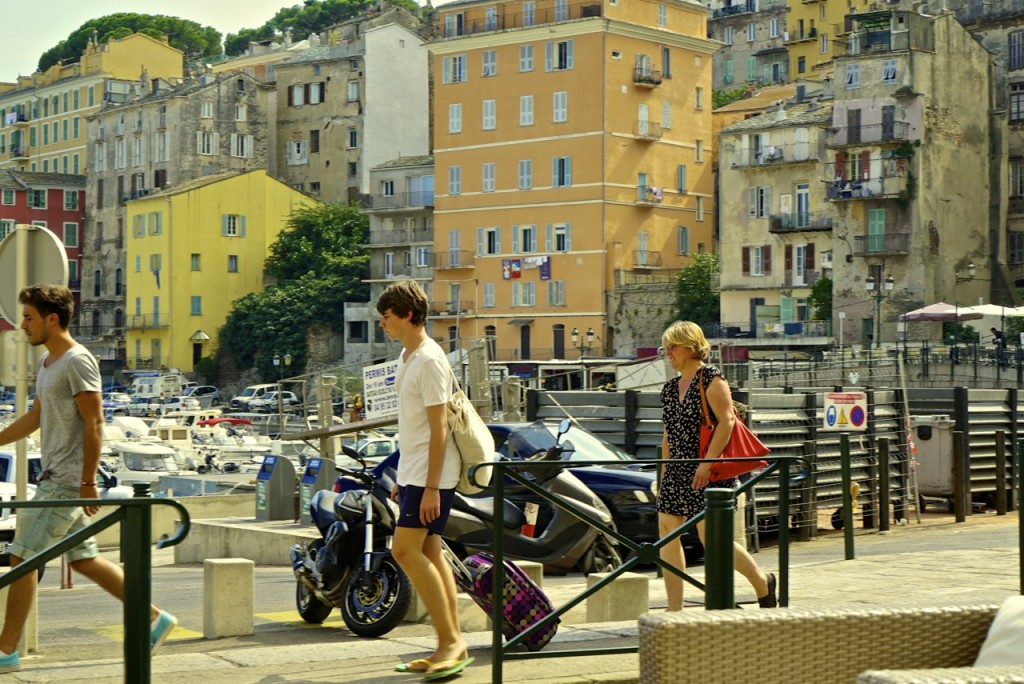In his second Huffington Post article on "place-decoding," Chuck Wolfe argues for considered attention to enhancing people's abilities to discern the city around them.
 In his second article written from France, Wolfe argues for enhanced opportunities for "place decoding" and distinguishes directed responses to the urban environment from intuitive opportunities to experience the city in context:
In his second article written from France, Wolfe argues for enhanced opportunities for "place decoding" and distinguishes directed responses to the urban environment from intuitive opportunities to experience the city in context:
Sensing the city is a personal experience owned by each of us. From a legal perspective, it is an urban property right that transcends public and private domains. It is a form of place-decoding that deserves more illustration and attention.
By illustrated example, he contrasts simple forms of urban interpretation, such as experiencing the commercialized smell of a street in Grasse, France (engineered by a large perfume manufacturer), with the more complex challenge of visually interpreting the multi-layered city such as Bastia, Corsica, where "small pockets of old blend with the new and lines of sight span the ages and associated technologies".
Accordingly, Wolfe stresses the importance of understanding who, respectively, are the leaders and followers in the urban experiential adventure and suggests supplementing cutting edge activism with a more holistic, experiential point of view.
He highlights efforts aimed at enhancing people's ability to sense the city, such as Adelaide, Australia's well-presented "Picture Adelaide 2040" project, Stage 1 of which centers on gathering 1000 stories from citizens (each with a photo) on how they use their favorite urban places. He also underscores the value of "how-to's", such as community classes, meet-ups, school curricula, training of political officials and sensitizing of loan.
Wolfe concludes:
We can urge our political leaders, our planners, our designers and real estate professionals that encouraging people to sense the city deserves a high priority in policies, plans and pro-formas. Better cities will not result from a mandated smell this, or see that mindset.
Rather, better cities are more apt to happen if we first learn how to smell and see, a Place-Decoding 101 class affordable to all.
FULL STORY: The Option of Sensing the City

Alabama: Trump Terminates Settlements for Black Communities Harmed By Raw Sewage
Trump deemed the landmark civil rights agreement “illegal DEI and environmental justice policy.”

Planetizen Federal Action Tracker
A weekly monitor of how Trump’s orders and actions are impacting planners and planning in America.

Why Should We Subsidize Public Transportation?
Many public transit agencies face financial stress due to rising costs, declining fare revenue, and declining subsidies. Transit advocates must provide a strong business case for increasing public transit funding.

Understanding Road Diets
An explainer from Momentum highlights the advantages of reducing vehicle lanes in favor of more bike, transit, and pedestrian infrastructure.

New California Law Regulates Warehouse Pollution
A new law tightens building and emissions regulations for large distribution warehouses to mitigate air pollution and traffic in surrounding communities.

Phoenix Announces Opening Date for Light Rail Extension
The South Central extension will connect South Phoenix to downtown and other major hubs starting on June 7.
Urban Design for Planners 1: Software Tools
This six-course series explores essential urban design concepts using open source software and equips planners with the tools they need to participate fully in the urban design process.
Planning for Universal Design
Learn the tools for implementing Universal Design in planning regulations.
Caltrans
Smith Gee Studio
Institute for Housing and Urban Development Studies (IHS)
City of Grandview
Harvard GSD Executive Education
Toledo-Lucas County Plan Commissions
Salt Lake City
NYU Wagner Graduate School of Public Service


























